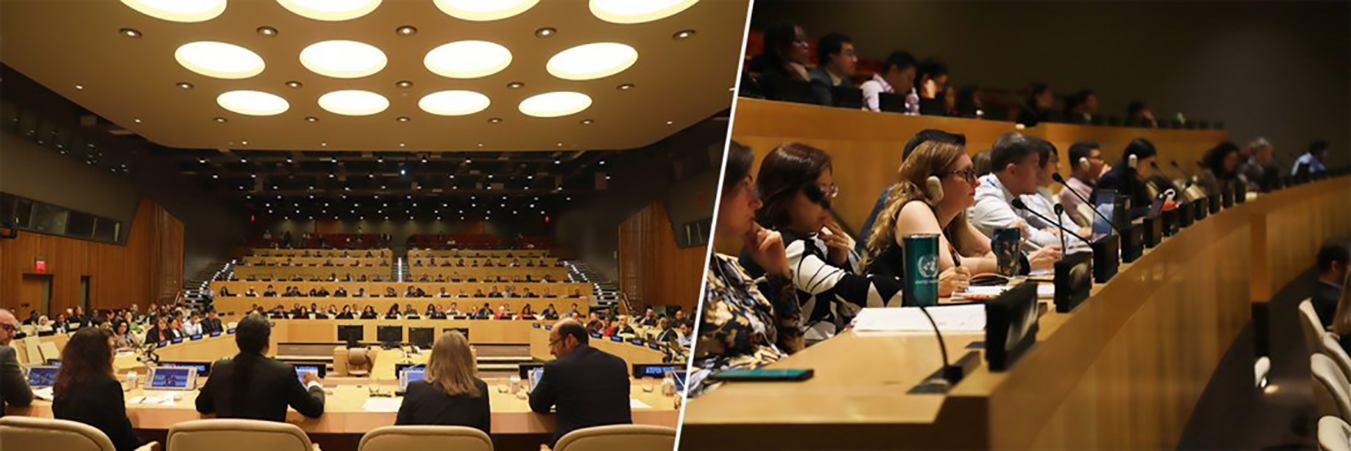- English
- Français
Highlights from the OICT Data Symposium


17 December 2019
By Mahsa Hedayati, Information Systems Officer, Policy, Strategy and Governance Division, Office of Information and Communications Technology
With data growing exponentially, the Office of Information and Communications Technology (OICT) hosted a symposium at United Nations Headquarters on 8 October titled “The Future of Data at the UN”.
The event, held in UNHQ’s ECOSOC Chamber, was heavily attended, indicating that staff are becoming increasingly interested in the topic of data and in playing an active role in this space.
In her opening remarks, Atefeh Riazi, Assistant Secretary-General and Chief Information Technology Officer, encouraged the audience to think about how data can bring value to the UN’s work. "How can we use data to move from crisis reaction to crisis prediction… [and] eventually connect the data so that we move from information, to knowledge, to understanding, to eventually wisdom? That’s where we want to be."
The symposium also featured accounts and perspectives from colleagues in the Department of Operational Support (DOS), the Department of Management, Strategy, Policy, and Compliance (DMSPC), and the United Nations Multidimensional Integrated Stabilization Mission in the Central African Republic (MINUSCA). Participants discussed how the Organization could benefit from leveraging not only its administrative but also substantive data; how data-driven policymaking may lead to more organizational efficiency; and how the UN could create a culture of open data that can be trusted and safe.
Salem Avan, Director of OICT’s Policy, Strategy and Governance Division, then moderated a multi-disciplinary panel that included: Francesca Perucci, Chief of UN DESA’s Statistical Services Branch; Dr. Sreekar Krishna, Principle Partner of Data and Analytics at KPMG; Lydia Clougherty Jones, Analyst and Research Director in the Data and Analytics Group at Gartner; and Jordan Morrow, Chief Head of Data Literacy at Qlik. The panellists discussed ways the UN can create an effective data ecosystem. While the consensus was that there is no off-the-shelf solution, they agreed that a data ecosystem, at its core, should consider: committing to consultative processes that are open and multi-stakeholder; assigning time-consuming, routine data tasks to artificial intelligence, where possible, so that humans can focus on more creative and analytical tasks; empowering the entire workforce through curated digital skills development; and ensuring that the entire ecosystem is based on a strong ethical foundation so as to nurture trust.
So what’s next? OICT used Slido and a post-event survey to collect feedback from the participants. We are now using these survey findings to understand how best to serve our clients in the data space. We will also strengthen our collaborations with colleagues from across the UN, to not only create a more data-driven organization but to eventually help enable the UN to move, as Ms. Riazi told the audience, from “data, to knowledge, to understanding, to wisdom”.
If you missed this Symposium on 08 October, a video recording is available: OICT Symposium: The Future of Data at the UN.
*The views expressed herein are those of the author(s) and do not necessarily reflect the views of the United Nations.
| Tweet |

